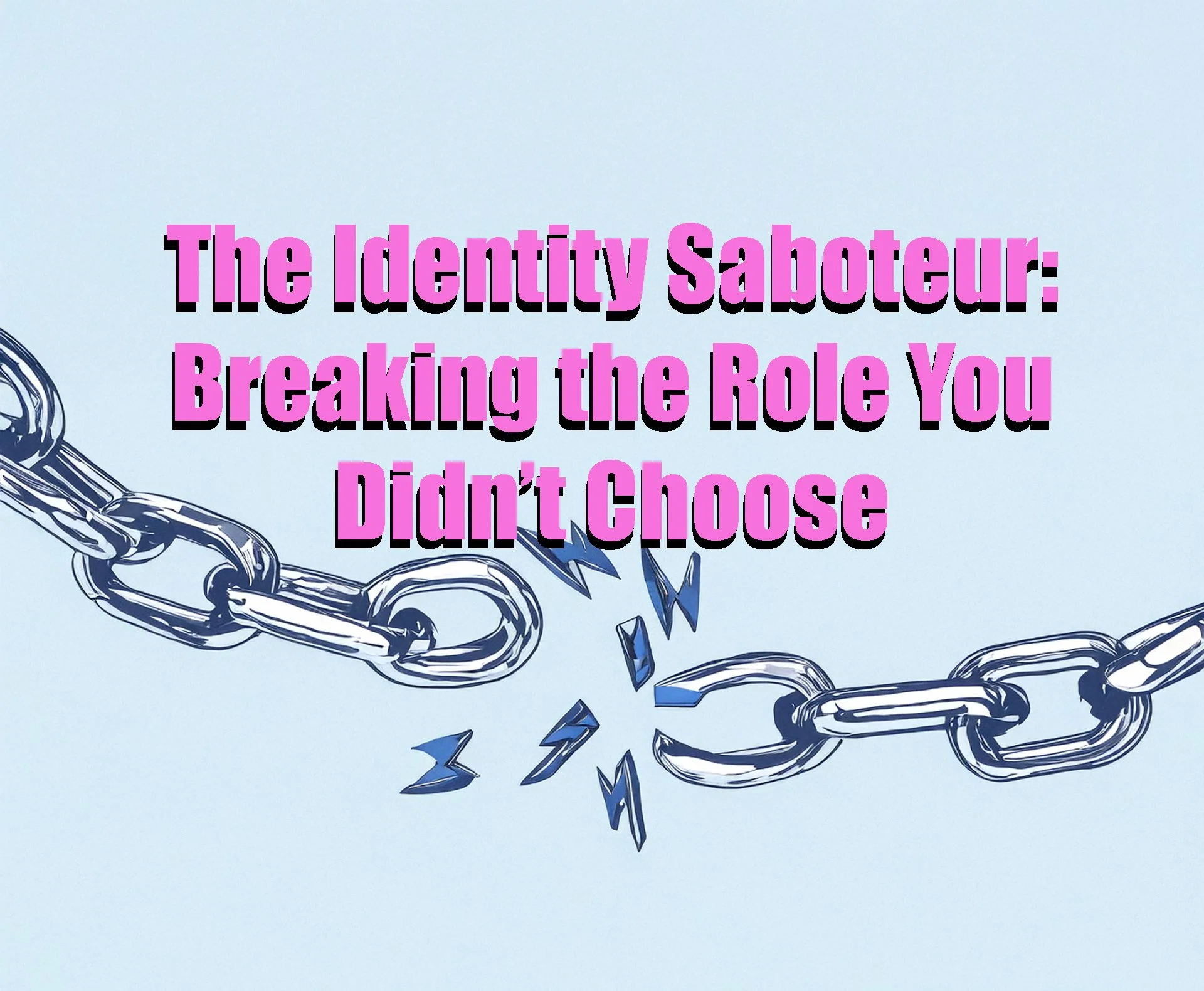The Identity Saboteur: Breaking the Role You Didn’t Choose
The Psychology of Roles: Why We Play Parts We Never Chose (and How to Change Them)
Most of us are living inside roles we never consciously picked.
The good child. The achiever. The peacekeeper. The reliable one.
We learned these parts early — at home, in school, in our cultural surroundings — and then kept performing them for years. Some we’ve mastered so well that we can’t tell where the role ends and we begin.
But psychology and sociology show us that roles are not destiny. They can be studied, questioned, reshaped — or abandoned entirely.
Life as Performance: The Sociological View
The sociologist Erving Goffman famously described life as a stage. In his view, we all perform roles depending on the “audience” — at home, at work, with friends.
This isn’t necessarily bad. Roles create predictability. They help groups function. When you meet a teacher, a doctor, or a bus driver, you already know what to expect because they’re performing a shared social role.
But problems arise when:
We inherit roles unconsciously (e.g., “the responsible one” in a family).
We outgrow roles but keep performing them for acceptance.
We mistake roles for identity and feel lost without them.
Psychologists call this role engulfment — when a single role swallows the rest of your identity.
The Family as the First Stage
Family systems theory shows how children often get assigned roles unconsciously:
The Hero – achieves, protects the family image.
The Caretaker – manages emotions, keeps peace.
The Scapegoat – carries blame or rebellion.
The Lost Child – stays quiet, avoids conflict.
These roles may help the family survive emotionally, but as adults, people often find themselves locked into patterns that no longer fit.
Cultural norms add another layer. In collectivist cultures, for example, roles often emphasize duty and harmony; in individualistic cultures, independence and achievement dominate. Either way, roles become scripts we rarely question.
The Psychological Cost of Wrong Roles
Research on role conflict and role strain shows links to:
Chronic anxiety and stress
Suppressed creativity
Burnout and depression
Identity confusion in adulthood
Carl Jung warned about over-identifying with the persona — the mask we wear for the world. When the mask hardens, we lose touch with the deeper self beneath it.
How to Tell If a Role Fits
Here’s a simple self-check exercise:
QuestionYes / NoDo I feel energized or drained when I’m in this role?Do I choose this role freely, or does it feel automatic?If I stopped performing this role, what reactions do I fear most?Do I even like the person I am in this role?
A role that fits may be challenging at times, but it feels authentic.
A role that doesn’t fit feels heavy, constraining, sometimes even suffocating.
My Own Example: The Role of “Serious”
For years, one of my roles was being serious.
It brought approval — I was seen as mature, composed, responsible. But inside, it felt like being locked in a tight costume. I wanted to be spontaneous sometimes, to surprise myself.
Yet my subconscious kept saying: “No. People expect this from you. Don’t break character.”
That tension — between outward approval and inner restlessness — is a sign a role may no longer serve you.
Experiments to Loosen a Role
Here are two ways to start experimenting:
Borrowed Role Exercise
For one week, try on a small behavior from a role you admire but don’t usually play.
Example: If you’re always the listener, share your opinion first in conversations.
Micro-Boundaries
Say no to one small request each day if your role is “the helper.”
Notice both your feelings and others’ reactions.
These small acts reveal where a role ends and choice begins.
Free Workbook: The Identity Saboteur
If you want a structured way to explore this, we created a free 3-page workbook:
The Identity Saboteur: Breaking the Role You Didn’t Choose
It guides you through:
Mapping your roles
Spotting triggers
Testing small exits
Reflecting on which roles to keep, alter, or abandon
Download it here for FREE → Identity Saboteur Workbook KKUM (English Version)
Final Thoughts
Roles help us navigate life, but they are meant to be tools, not prisons.
The goal isn’t to reject all roles, but to choose them consciously — keeping the ones that align with who we are, reshaping the ones that need change, and walking away from those that erase us.
Because you are more than the parts you were told to play.
